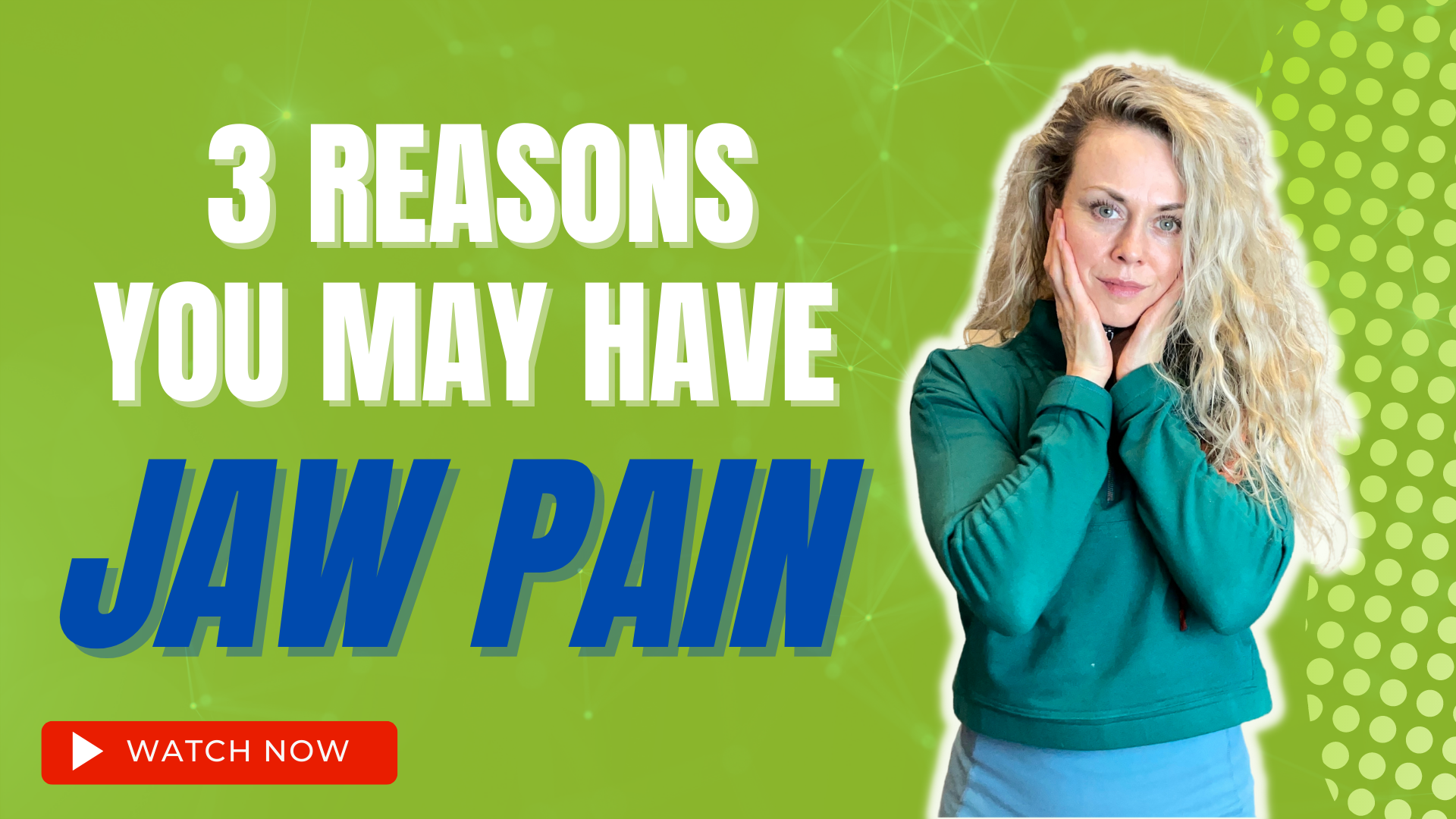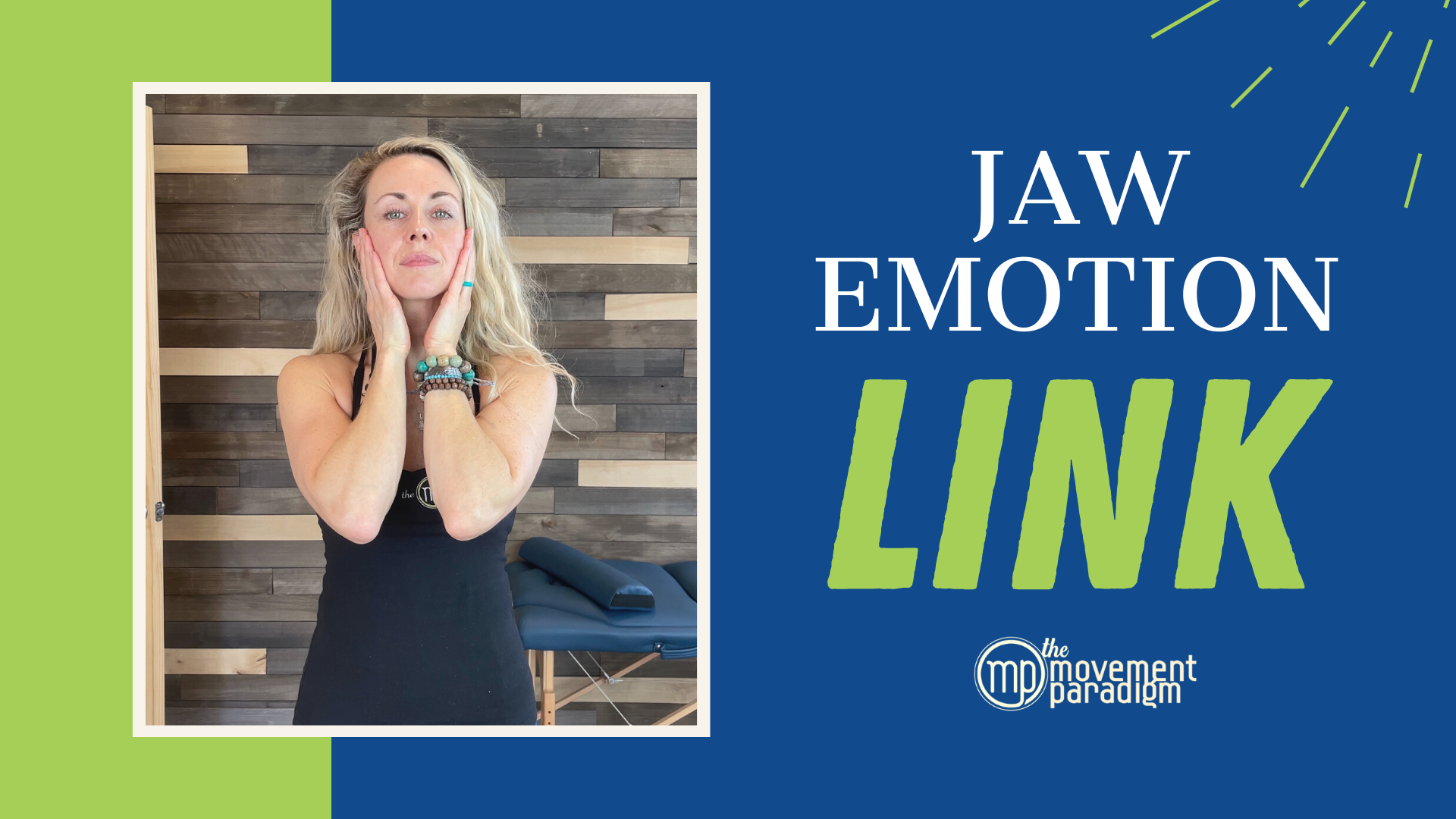Are you experiencing jaw pain, and you continue to seek solutions, but you just can’t seem to get to the bottom of it? Here are three reasons why you may have jaw pain.
Rather watch or listen?
What You Need To Know About Paw Pain
The most common thing you may be aware of is that you’ve been clenching or grinding, whether at night or during the day. Perhaps your dentist has told you that you’ve been grinding?
Here are three primary causes that will help you to uncover the underlying causes of your pain.
Causes of Jaw Pain
1. Stress
Stress can contribute to clenching and/or grinding. This can also be associated with poor vagal tone or poor parasympathetic activity.
Often, these are associated, and there’s a correlation with the trigeminal nerve. The trigeminal nerve can specifically act as a sympathetic and parasympathetic nerve.
The trigeminal nerve actually innervates the skin of the face, the mucosa, and the nasal cavity, and so it has a very deep connection with the vagus nerve. Therefore, it actually produces specific neurotransmitters, so when there’s a dysfunction of the trigeminal nerve, it can be associated with some mood issues and neuropsychiatric disorders.
When there’s a miscommunication between these two nerves, often influenced by stress or trauma, then this can contribute to clenching and grinding.
2. Airway dysfunction
One of the biggest causes of jaw pain, and often overlooked, is an overbite, underbite, poor tongue posture, tonsil issues, small nasal valves, or a deviated septum. There are so many potential airway dysfunctions that could be contributing to your jaw pain, so it is very important that if you’ve had chronic jaw pain, you have your airway evaluated by a specialist. That can help you breathe, move and sleep better.
3. Lack of stability in the body
Finally, one of the reasons why you may have jaw pain is compensation for lack of stability somewhere else in the body. Most commonly, there’s a deep connection to the pelvic floor. When the pelvic floor is very overactive, and is not sequencing, relaxing, and contracting the way it should, there can often be associations with the clenching and grinding within the jaw.
And so, let’s take the example of you standing on one leg. If you’re trying to stand on one leg and you’re really out of balance, your body is going to figure out some mechanism to be safe.
When you have jaw pain, or any other pain for that matter, you really want to dig deeper and find out why so that you can treat the underlying cause. Identifying the root cause will help you become pain-free, live an active lifestyle, breathe better, sleep better, eat better, and do all the wonderful things you deserve.
If this was helpful, please give it a like and a share, and subscribe to our YouTube channel, The Movement Paradigm, for weekly tips on mindset, nutrition, and movement.
If you need help on your journey, we would love the opportunity to help, so please reach out to us for a discovery session, and we can help you get on the right path.
If you are ready to take action now, schedule here: https://p.bttr.to/3Qu7wRd
Other things that might interest you:


